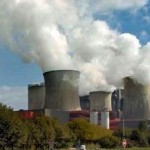The “Banking on Coal” report also examines the “hot spots” of global coal production and the vastly destructive impacts that coal mining is having on India’s last tiger forests, on indigenous communities in Colombia, or on scarce water resources in South Africa. For each of the global “hot spots” of coal production, the report uncovers which financial institutions have played the lead role in financing the expansion of the industry.
Central Europe is one of the coal hot spots featured in the report, as Germany and Poland are among the world’s major lignite producers. Together they account for almost 25% of the world’s lignite production. “Poland, which is hosting the UN climate talks, relies heavily on coal, harming communities across the country.
Private sector banks should help it transition to a cleaner economy instead of bankrolling strip mining and air pollution,” says Anna Drążkiewicz of the Polish Green Network.
Yann Louvel of BankTrack concludes, “Banks must stop undermining our future by financing yesterday’s fuel. We want them to quit coal and we want them to do it now.”
The report is a sequel to the study “Bankrolling Climate Change” published in 2011 at COP17 in Durban, which examined banks’ involvement in the entire coal industry, from coal mining to energy generation. This report focuses on the coal mining industry, but digs deeper to uncover the banks behind the mines.
Ms. Heffa Schücking talks at UN Climate Change Conference 2013 in Warsaw about the role banks play in financing coal production.
Check the following link to read/download the Full Report:
http://urgewald.org/sites/default/files/banking_on_coal_4_67_6.pdf
Source: Urgewald.














